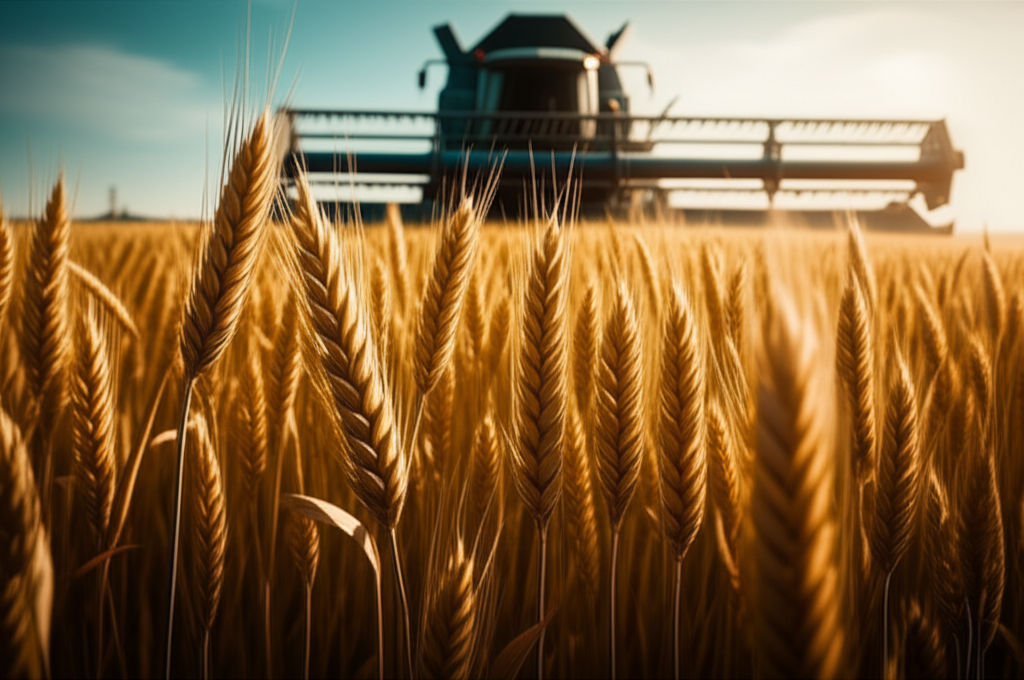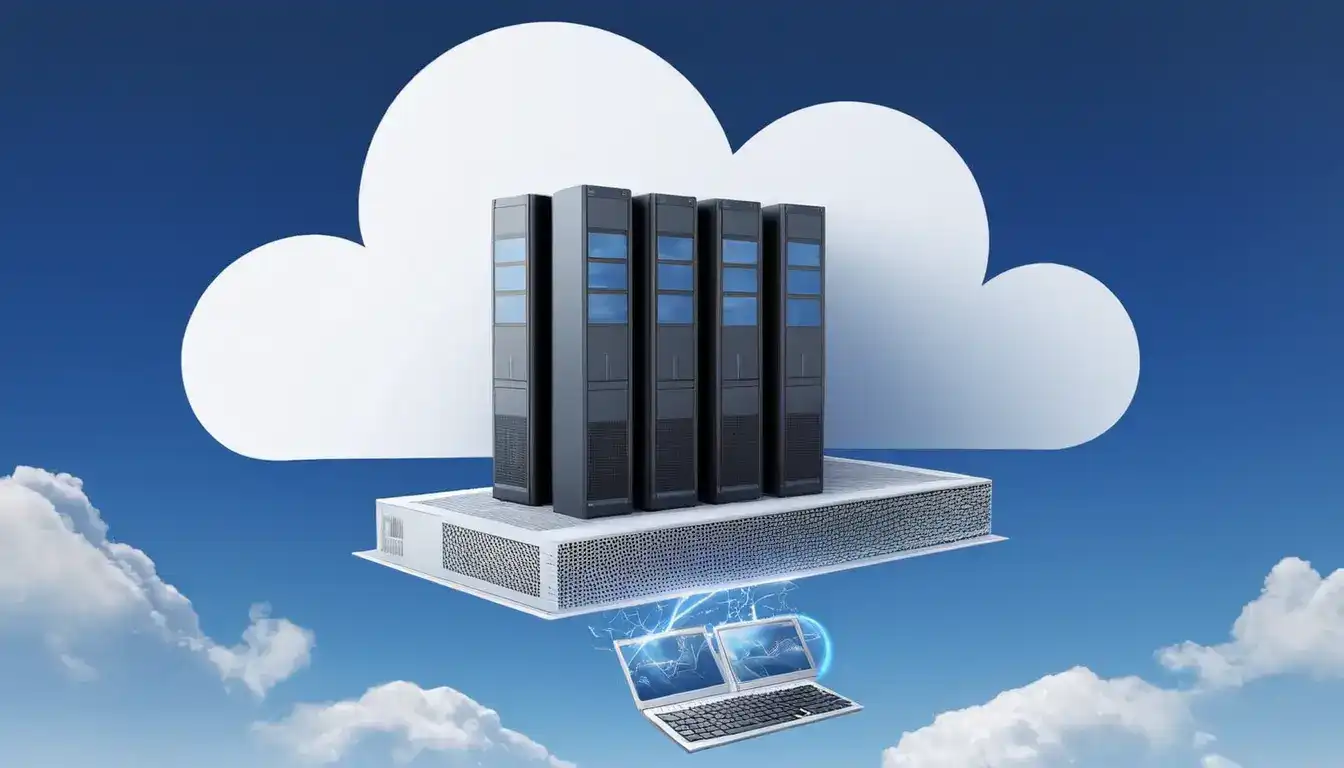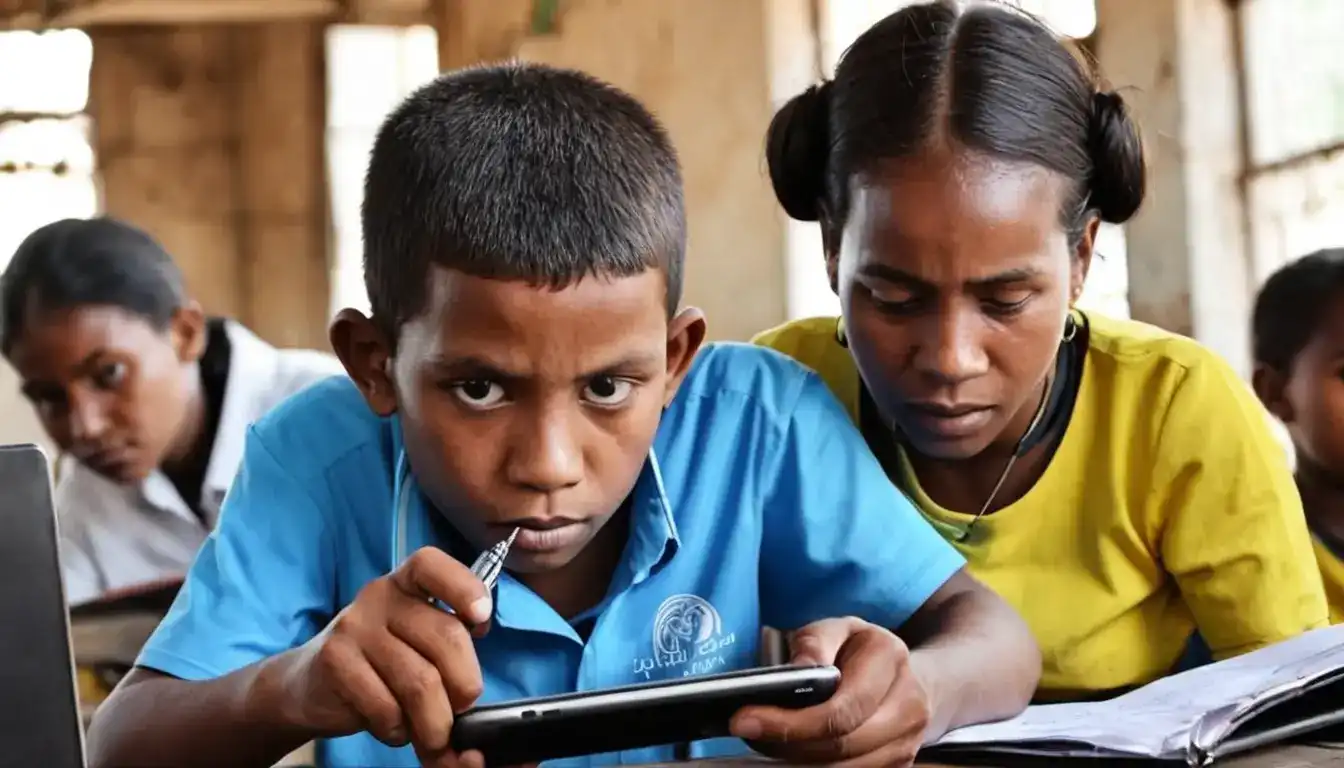Agricultural Economics: Feed the World
Emily Willis

Photo: Agricultural Economics: Feed the World
The challenge of feeding a growing global population is one of the most critical issues of our time. As the world's population is projected to reach 9.2 billion by 2050, the demand for food is expected to increase significantly, by as much as 59%–102%. This rising demand, coupled with environmental pressures and economic disparities, places immense strain on global food systems. Agricultural economics, a field that examines the production, distribution, and consumption of agricultural goods, offers crucial insights and solutions to navigate these complexities and work towards a food-secure future for all.
The Core of Food Security: Beyond Just Enough Food
Food security is a multifaceted concept, extending beyond simply having enough food. It exists when all individuals, at all times, have physical, social, and economic access to sufficient, safe, and nutritious food that meets their dietary needs and food preferences for an active and healthy life. This comprehensive definition highlights four key pillars:
- Availability: The physical presence of food, whether through domestic production, imports, or food aid.
- Access: The ability of individuals to obtain food, encompassing both physical availability and the economic means to acquire it. Poverty and unemployment are significant economic drivers of food insecurity.
- Utilization: The body's ability to make use of the food consumed, which depends on factors like nutrition, food safety, and adequate sanitation.
- Stability: Consistent access to food over time, free from disruptions caused by price volatility, climate shocks, or conflicts.
Understanding these pillars is fundamental to addressing the global food challenge, as each presents unique economic considerations.
Agricultural Economics: The Engine of Food Systems
Agricultural economics applies economic principles to the agricultural sector, analyzing everything from farm-level decisions to international food trade policies. It delves into market mechanisms, policy analysis, and resource allocation to understand and improve food systems on a global scale. The discipline is crucial for developing effective interventions that address both immediate needs and long-term sustainability in food production and distribution.
Historically, agricultural development has often preceded overall economic growth, laying the foundation for broader societal advancement. Investments in agriculture and education have created surpluses, kept food prices low, and stimulated economic growth. This sector not only provides food but also generates employment, income, and supports rural livelihoods, especially in developing countries where a large portion of the poor depend on agriculture.
Major Challenges to Global Food Security
Despite significant advancements in agricultural productivity over the past 50 years, several formidable challenges threaten global food security. These issues are often interconnected, creating a complex web of vulnerabilities.
Climate Change and its Economic Ripple Effects
Climate change is not an abstract threat; its impacts are profoundly felt across the agricultural sector and the entire food supply chain. Rising temperatures, erratic weather patterns, increased frequency of extreme events like droughts and floods, and altered precipitation patterns directly reduce crop yields and quality. For example, climate change has reduced global agricultural productivity by approximately 21% since 1961, with a more severe impact in warmer regions.
The economic consequences are substantial:
- Reduced Productivity: Extreme weather degrades soil health, disrupts planting schedules, and diminishes harvests.
- Increased Costs: Disruptions in production and transportation, exacerbated by geopolitical tensions, lead to higher input costs for farmers and increased prices for consumers.
- Food Insecurity: Climate change exacerbates desertification and land degradation, particularly in Africa and Asia, reducing soil productivity and leading to food insecurity and economic hardship for vulnerable populations.
Resource Scarcity: Land, Water, and Nutrients
The availability of essential agricultural resources is finite and under increasing pressure.
- Land Degradation: Traditional farming methods often lead to nutrient depletion, erosion, and unproductive land. A significant portion of the world's fertile soil has already degraded, posing a substantial risk to the global food supply.
- Water Scarcity: Agriculture is a major consumer of water, and many regions face increasing water scarcity due to climate change and unsustainable practices.
- Fertilizer Costs: Global fertilizer prices, influenced by energy costs, have fluctuated, impacting farmers' ability to maintain soil fertility and yields.
Food Waste: An Economic and Ethical Dilemma
Globally, approximately one-third of all food produced for human consumption is lost or wasted each year, amounting to about 1.3 billion tons. This represents a staggering economic loss of around $940 billion annually. Food waste occurs at every stage of the food supply chain:
- Production: Poor harvesting techniques, pest infestations, weather issues, and lack of infrastructure (storage, transportation) contribute to significant post-harvest losses, especially in developing countries. Retailers' strict cosmetic standards also lead to the rejection of perfectly edible produce.
- Processing and Packaging: Inefficiencies in manufacturing, equipment malfunctions, and consumer demand changes can lead to waste.
- Retail and Consumption: Overproduction, bulk purchasing, and consumer behavior (e.g., misinterpreting expiration labels, poor storage) contribute significantly to waste at the retail and household levels.
This waste is not just an ethical concern; it has profound economic and environmental impacts, contributing to greenhouse gas emissions and inefficient resource use.
Economic Access and Inequality
Even when food is available, economic barriers often prevent vulnerable populations from accessing it. Poverty and unemployment are primary drivers of food insecurity, limiting people's ability to purchase nutritious food. Disparities in food availability and price volatility significantly impact food policies and exacerbate existing challenges. Investing in local production can help, as it provides food, income, and improved nutrition outcomes, while also addressing costly supply and delivery constraints in hard-to-reach areas.
Economic Solutions for a Food-Secure Future
Addressing these challenges requires a multi-pronged approach rooted in sound agricultural economic principles.
Promoting Sustainable Agriculture
Sustainable agriculture is crucial for long-term food security. It focuses on practices that increase productivity while minimizing environmental damage and ensuring economic viability for farmers.
- Enhanced Soil Health: Practices like crop rotation, cover cropping, agroforestry, and reduced tillage improve soil fertility and health, leading to higher yields and long-term economic stability.
- Efficient Resource Management: Sustainable methods reduce the need for chemical inputs, lowering costs for farmers and enhancing profitability. Precision agriculture techniques, such as precision irrigation systems, deliver exact amounts of water, significantly reducing consumption and preserving local water resources.
- Increased Resilience: Sustainable practices enhance biodiversity, making farms more resilient to pests, diseases, and market fluctuations. They also improve resilience to extreme weather events.
Leveraging Innovation and Technology
Technological advancements are vital for boosting agricultural productivity and enhancing food security.
- Emerging Production Technologies: Regenerative methods, vertical farming, and hydroponics can improve yields and reduce land usage.
- Digital and Data-Driven Solutions: AI-powered systems, drones, and GPS-guided tractors optimize planting, irrigation, and harvesting, ensuring precise input application, reducing fuel consumption, and boosting overall efficiency. Data solutions can also trace commodities throughout the supply chain, ensuring compliance and reducing waste.
- Crop Innovation: Research and development in crop breeding can lead to new varieties more resistant to pests, diseases, and environmental stresses, increasing food availability and reducing vulnerability.
Improving Supply Chain Efficiency and Reducing Food Waste
Optimizing the food supply chain is critical to minimize waste and ensure food reaches consumers efficiently.
- Post-Harvest Management: Investing in better storage facilities, improved transportation, and cold chain solutions can significantly reduce post-harvest losses, especially for perishable goods.
- Value-Added Products: Upcycling 'imperfect' produce into non-perishable food ingredients or new products can reduce waste and create new income streams for farmers.
- Market Linkages: Creating secondary markets for 'ugly' produce and improving connectivity between rural and urban areas through infrastructure and market linkages can increase access to diverse nutritious foods and support local economies.
- Consumer Education: Public awareness campaigns on proper food storage, meal planning, and understanding expiration labels can significantly reduce household food waste. Dynamic pricing apps can also help retailers sell perishable goods before they expire.
Strengthening Economic Access and Policy Frameworks
Addressing the economic dimensions of food insecurity requires targeted policies and investments.
- Poverty Reduction: Economic growth is a necessary condition for a sustainable solution to poverty and food insecurity. Policies that promote income-generating activities for the poor, especially in rural areas, improve their ability to purchase food.
- Access to Credit and Resources: Empowering smallholder farmers with access to credit, resources, and education is crucial for improving productivity and market access.
- Fair Trade Practices: Ensuring small farmers receive fair prices for their products, possibly through cooperatives, can significantly improve their livelihoods.
- International Cooperation: Reducing trade barriers can facilitate the flow of agricultural goods and promote regional cooperation,
Latest ✨
View AllUnlock educational innovation with Design Thinking! Learn how this human-centered approach transforms learning environments, curriculum, and school culture for...
Emily Willis
Unlock the power of collaborative learning! Build stronger communities, foster deeper understanding, and solve challenges together for a connected future.
Emily Willis
The Internet of Things (IoT) has revolutionized various industries by enabling real-time data collection, analysis, and automation. In manufacturing, IoT has led to smart factories, predictive maintenance, and supply chain optimization. In healthcare, IoT has facilitated remote patient monitoring, smart hospitals, and enhanced patient care.
Emily Willis
Thrive in today's competitive markets. Discover strategies to adapt to globalization, digitalization, and evolving consumer demands for business growth.
Emily Willis
Business
View All
August 5, 2024
How to build a long-lasting and profitable businessfundamental principles of building a successful and long-lasting business, including understanding the foundation of your business idea, building a strong brand identity, crafting a compelling value proposition, financial management, prioritizing customer satisfaction, adaptability, and resilience. It also provides actionable strategies such as cultivating a customer-centric culture, embracing data-driven decision-making, fostering innovation, building a strong team, embracing technology, building partnerships, giving back to the community, embracing sustainability, protecting intellectual property, and planning for the future.
Emily Willis

July 4, 2025
Smart Business Card HoldersThe future of networking is here! Explore smart business card holders – your next essential for digital, dynamic professional connections.
Emily Willis

August 5, 2024
Effective Marketing Strategies to Increase Your Business Saleseffective marketing strategies in today's competitive marketplace. It discusses the significance of understanding the target audience, building a strong brand identity, and implementing various marketing tactics to increase sales. Specific strategies such as video marketing, influencer marketing, optimizing customer experience, embracing omnichannel marketing, tracking performance, staying updated on trends, and continuous improvement are highlighted.
Emily Willis
Economy
View AllSenior secured financing explained: benefits, types, tips, and real-world examples to help businesses access low-risk, asset-backed capital solutions.
Read MoreGlobalization has a profound impact on the economies of developing countries, offering both opportunities and challenges. By increasing access to markets, facilitating technology transfer, creating jobs, and promoting cultural exchange, globalization can drive economic growth and development. However, addressing the challenges of economic inequality, loss of domestic industries, environmental impact, and cultural homogenization is essential to ensure sustainable and inclusive growth. By adopting strategic measures and fostering international cooperation, developing countries can maximize the benefits of globalization and build a brighter future
Read MoreThe digital economy has the potential to bring economic growth and innovation to developing countries, but there are several challenges that need to be addressed. These challenges include inadequate digital infrastructure, a digital divide that exacerbates inequalities, complex and outdated regulatory frameworks, cybersecurity risks, and limited access to financial services. However, there are opportunities for enhancing financial inclusion and economic growth. These opportunities include mobile and digital payments, implementing digital identification systems, e-commerce and market access, digital skills development, and public-private partnerships. By addressing these challenges and embracing the digital revolution, developing countries can unlock new opportunities for economic empowerment and inclusive growth.
Read MoreEntertainment
View All
August 4, 2024
The Evolution of Digital Distribution in the Music Industry: Challenges and OpportunitiesThe music industry has been transformed by digital distribution, which allows quick access to a vast catalog of music through streaming services and online stores.
Emily Willis

August 5, 2024
Entertainment in Society: Social Impact, Cultural Influence, Economic ContributionsEntertainment is more than just a way to pass the time it has a significant impact on society, culture, and the economy. It promotes empathy, sparks conversations, and drives social change. It reflects and shapes cultural trends, while also preserving traditions. The entertainment industry generates jobs, contributes to economic growth, and drives technological innovation.
Emily Willis

August 5, 2024
Video Games: Enduring Appeal, Immersive Worlds, and Diverse Genresenduring appeal of video games, highlighting their ability to transport players to fantastical realms, challenge their minds, and foster connections with others. It explores the magic of immersive worlds, the vast array of genres available, and the social power of gaming.
Emily Willis
Health
View Allour minds are often overwhelmed with information and stimuli, leading to stress and anxiety. Mindfulness and meditation offer tools to cultivate inner peace and well-being. Mindfulness involves being present in the moment without judgment, while meditation involves focusing attention on an object or thought.
Emily Willis
A healthy lifestyle is crucial for enhancing overall quality of life in today's fast-paced world. It involves habits such as a nutritious diet, regular exercise, adequate sleep, stress management, and avoiding harmful substances. Benefits include improved physical health, enhanced mental well-being, increased energy levels, better sleep quality, and longevity. Implementing healthy habits gradually, staying consistent, seeking support, and monitoring progress are key steps towards a healthier lifestyle. Prioritizing a healthy lifestyle is not just about adding years to life but about adding life to years, leading to a more fulfilling and vibrant life.
Emily Willis
The healthcare landscape is being transformed by technological advancements, with telehealth and remote care providing convenient access to healthcare services. Artificial intelligence is revolutionizing diagnostics, personalized medicine, and drug discovery. Wearable technology is empowering patients to take control of their health.
Emily Willis
Trending 🔥
View All
2
3
4
5
6
7
8
9
10
Sports
View AllAugust 5, 2024
The Future of Sports: Anticipating Trends, Embracing Innovation, Shaping a New Era
Read MoreAugust 5, 2024
Celebrating Sports Legends: Honoring Iconic Figures and Their Enduring Impact
Read MoreTechnology
View All
August 5, 2024
Ethical Challenges in AI Development and Use
Artificial Intelligence (AI) has evolved rapidly from science fiction to reality, offering immense potential but also presenting significant ethical challenges.

August 5, 2024
AI Applications that are Changing the World Around Us
Artificial Intelligence (AI) is no longer a concept from science fiction, but a reality that is reshaping the world around us. From virtual assistants to self-driving cars, AI is making significant impacts in various industries such as healthcare, education, transportation, and agriculture. AI is also being used to address environmental challenges and enhance customer experiences.

August 4, 2024
Data Security in the Digital Era: Challenges and Solutions
importance of data security in the digital age, highlighting challenges such as cyberattacks, human error, weak passwords, and outdated systems. It also provides solutions to enhance data security, including encryption, strong password policies, multi-factor authentication, regular software updates, employee training, access controls, data backup, incident response plans, security audits, and advanced security technologies. These measures are essential for protecting sensitive information and preventing unauthorized access and breaches.

August 5, 2024
How to Choose the Right Cloud Computing Platform for Your Needs
Choosing the right cloud computing platform is essential for business success. Factors to consider include assessing business needs, evaluating cost and pricing models, analyzing performance and reliability, examining security and compliance, considering scalability and flexibility, evaluating support and customer service, assessing integration and compatibility, and reviewing user experience and ease of use.





















